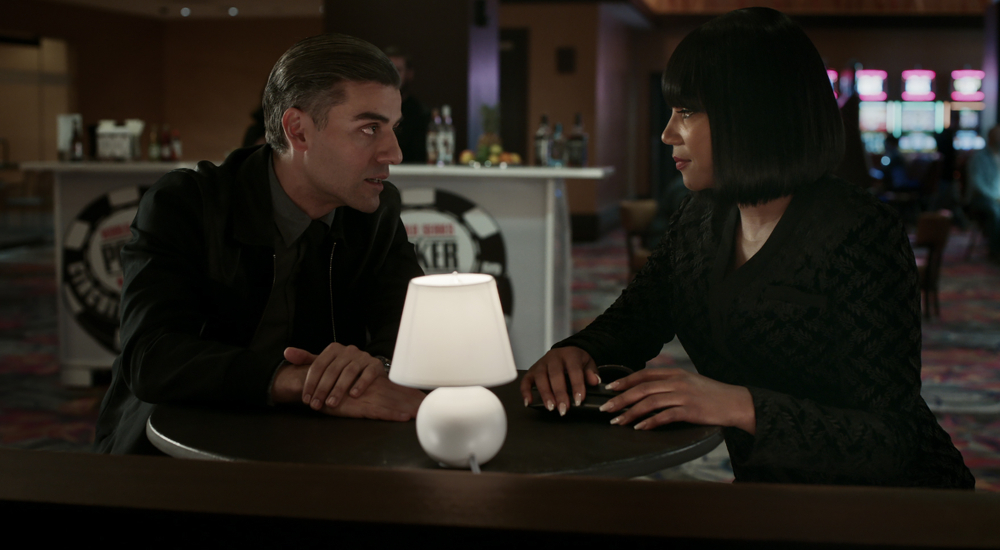"Poker is all about waiting," William Tell (Oscar Isaac) announces in flat narration. So too is the latest film by Paul Schrader. The Card Counter is methodically paced, never showing its cards until the finale. For patient viewers, this is one of the year's best films.
It would be incorrect to label Will a degenerate gambler. Yes, he spends his life in casinos and dingy motels across the U.S., but his compulsion is not an addiction. He wins nearly every hand he's dealt at nearly every table he sits at, but only takes small scores. Driving in a nondescript sedan, he prefers to go unnoticed. Unlike some more colorful players he'll encounter throughout the film, he mostly wears shades of grey. He picks mostly unoccupied hotels, where he carefully drapes white linens over nearly every surface, the better to drown out the noise inside his head and out.
Yes, Will is one of Schrader's lonely men. Haunted by past failures, he's seeking a twisted form of redemption, which may or may not be possible. This is a common thread in Schrader's best work, including Taxi Driver, Bringing Out the Dead and First Reformed. His vessel for absolution is Cirk (Tye Sheridan), the brash son of a man Will served with in Iraq. If he can get Cirk back on the right track, maybe Will can leave his solitary life behind. But of course, it's not that simple. Cirk hopes that by hitching along for the ride, he can convince Will to join him on a revenge mission to kill Maj. John Gordo (Willem Dafoe), the Army consultant who got off scot-free while Will went to jail and his dad devolved into a violent addict.
One of the many things that makes The Card Counter so great is how it uses violence. In disorienting flashbacks, we're up close to the blood, sweat and other bodily fluids. Later, we hear Will describe to Cirk the atrocities he saw daily. And without spoiling anything, its finale uses only horrifying sound effects to get its point across.
But the film is not all bleak. After initially being dismissive, Will falls hard for La Linda (Tiffany Haddish). A former gambler who could never quite make it to the big leagues, she now represents wealthy investors who run a stable of card players. Their date at a park decorated with thousands of colored lights for Christmas is a moment of pure ecstasy, a literal bright spot amidst the metaphorical darkness. Schrader may be a cynic about the rotten state of the world, but he's no nihilist. There are glimmers of hope in his worlds, fleeting as they may be.
Even if you're not into playing cards or pondering morality, The Card Counter has riches galore. It plays the long game, but the payoff is worth it.

